18 July - 25 August 2024
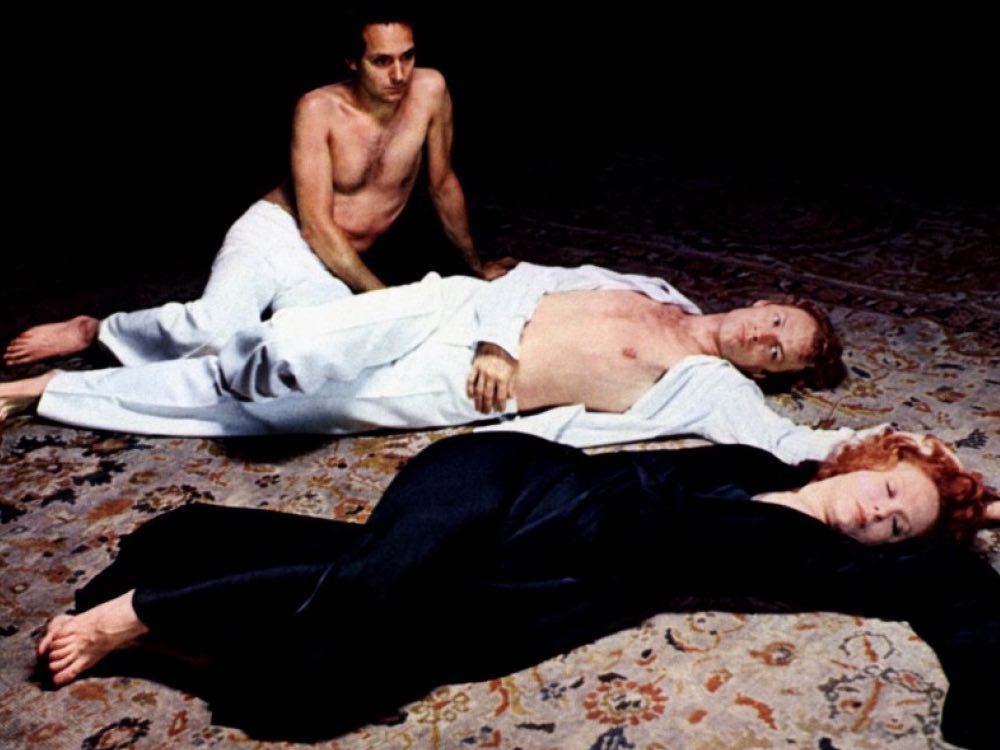
Cinema is being trapped in the dark with an image. Nothing more. No matter the image. A car going at 100 miles per hour or a face saying ‘no’. A concert that has been filmed is cinema, too: there is music and then there is an image. The rest is nonsense. There is no theory that can support it. —M.D., 1966
If there is such a thing as good avant garde cinema, this is it. Even though I believe pretension is the ultimate sin, Marguerite Duras has taken pretension one level ahead of itself and turned it into a style. She is the ultimate eccentric.—John Waters
In 1966, Marguerite Duras, already a prolific writer of novels, plays and screenplays, turned to filmmaking, co-directing the first of her nineteen films. In collaboration with Another Gaze Editions – whose recent publication of Duras’s My Cinema encourages an engagement with this body of work in the filmmaker’s own words – the ICA presents a full retrospective of her shorts, features and televisual work, alongside several works she wrote, or to which she lent her voice.
As a filmmaker, Duras didn’t consider herself to have any contemporaries. In fact, one of the reasons she embarked on her own practice was to supersede adaptations by (male) directors who had “misread” her writing: rendering it too literally, or watering it down for mass appeal (an appeal that many of her novels – bestsellers and prize-winners – had). Throughout her three-decade spanning filmmaking career, Duras – often adapting her own work, and then readapting these adaptations when they (still) failed to satisfy her – advocated for a “poor cinema”, railing against commercial productions, which she considered to be “chewed over, pre-digested, and served up for the consumption of a public whose intellectual faculties are made to work at twenty percent of their capacity”.
Duras’s films challenge and complicate any conventional relationship between the audio and the visual: often, that which is described never manifests on-screen, when, indeed, there is an easily decipherable image at all. The majority of her films are anti-narrative, and the backgrounds and motivations of her characters (in so far as they can be described as such, given that characterisation is often deliberately lacking) are absent. As in her writing, Duras’s scripts are full of language games: sentences are twisted beyond recognisable syntax, and repetition of elements of speech and music is used to hypnotic and sometimes maddening effect.
Duras’s filmic experiments are deeply sensual: many of them concern the most extreme – sometimes taboo, often deadly – limits of desire, and their soundtracks, containing rumbas and tangos, conjure the tropics in which the filmmaker came of age. Her unconventional relationship to form reflects a complicated relationship with representation. Nonetheless, the defining preoccupations of the writer-filmmaker’s life move in and out of the frame: the French colonies, Jewishness after the Shoah, the domestic lives of women, the proletariat and the Communist Party…
— Daniella Shreir, Another Gaze co-founder
This comprehensive retrospective will include new restorations alongside imported prints of rarely seen works, as well as special guests, invited speakers and newly commissioned essays contextualising Duras’s work.

Cinema is being trapped in the dark with an image. Nothing more. No matter the image. A car going at 100 miles per hour or a face saying ‘no’. A concert that has been filmed is cinema, too: there is music and then there is an image. The rest is nonsense. There is no theory that can support it. —M.D., 1966
If there is such a thing as good avant garde cinema, this is it. Even though I believe pretension is the ultimate sin, Marguerite Duras has taken pretension one level ahead of itself and turned it into a style. She is the ultimate eccentric.—John Waters
In 1966, Marguerite Duras, already a prolific writer of novels, plays and screenplays, turned to filmmaking, co-directing the first of her nineteen films. In collaboration with Another Gaze Editions – whose recent publication of Duras’s My Cinema encourages an engagement with this body of work in the filmmaker’s own words – the ICA presents a full retrospective of her shorts, features and televisual work, alongside several works she wrote, or to which she lent her voice.
As a filmmaker, Duras didn’t consider herself to have any contemporaries. In fact, one of the reasons she embarked on her own practice was to supersede adaptations by (male) directors who had “misread” her writing: rendering it too literally, or watering it down for mass appeal (an appeal that many of her novels – bestsellers and prize-winners – had). Throughout her three-decade spanning filmmaking career, Duras – often adapting her own work, and then readapting these adaptations when they (still) failed to satisfy her – advocated for a “poor cinema”, railing against commercial productions, which she considered to be “chewed over, pre-digested, and served up for the consumption of a public whose intellectual faculties are made to work at twenty percent of their capacity”.
Duras’s films challenge and complicate any conventional relationship between the audio and the visual: often, that which is described never manifests on-screen, when, indeed, there is an easily decipherable image at all. The majority of her films are anti-narrative, and the backgrounds and motivations of her characters (in so far as they can be described as such, given that characterisation is often deliberately lacking) are absent. As in her writing, Duras’s scripts are full of language games: sentences are twisted beyond recognisable syntax, and repetition of elements of speech and music is used to hypnotic and sometimes maddening effect.
Duras’s filmic experiments are deeply sensual: many of them concern the most extreme – sometimes taboo, often deadly – limits of desire, and their soundtracks, containing rumbas and tangos, conjure the tropics in which the filmmaker came of age. Her unconventional relationship to form reflects a complicated relationship with representation. Nonetheless, the defining preoccupations of the writer-filmmaker’s life move in and out of the frame: the French colonies, Jewishness after the Shoah, the domestic lives of women, the proletariat and the Communist Party…
— Daniella Shreir, Another Gaze co-founder
This comprehensive retrospective will include new restorations alongside imported prints of rarely seen works, as well as special guests, invited speakers and newly commissioned essays contextualising Duras’s work.
Let Cinema Go To Its Ruin: The Cinema of Marguerite Duras is curated by Daniella Shreir, Another Gaze.
With special thanks to Andréa Picard and her colleagues Amanda Brason and Vivian Belik at TIFF for their support in the initiation of this programme.
Marguerite Duras was born in 1914 in Gia Định, French Indochina (now Vietnam), and died in Paris in 1996. She was a prolific novelist, playwright, screenwriter, essayist, and filmmaker. In the words of Rachel Kushner: ‘A lot of things happened to Marguerite Duras […] Her first husband, Robert Antelme, was deported to Dachau and came back, but weighing eighty pounds. Duras worked for the Occupation, and later joined the Resistance, then the Communist Party. Was expelled from the Communist Party but remained a Marxist. Did television interviews with both President François Mitterrand and the filmmaker Jean-Luc Godard. Aspects of her life are legends, like the destitute poverty of her childhood, in Indochina. In some writings, her mother’s ailment is madness. In others, menopause. Or financial ruin. Sometimes, the mother’s madness is her strength. Maybe these are not contradictions. The erotic charge between her and the older Chinese lover in Saigon seems like art, scenes that bloomed on paper. Things happened to Duras “that she never experienced,” as she put it. The story of her life did not exist, she said.’
Another Gaze was founded in 2016 as a “journal of film and feminisms”. Since then, they have published several printed issues, launched a free streaming platform, Another Screen, and, most recently, a small press. My Cinema by Marguerite Duras was published in January.
Ticket pricing
£13 Full Price / £11 Concessions. £5 for 25 and Under.
Blue Members get half-price, Red Members get unlimited access.
Multibuy offer
Full programme (23 screenings): £161 Full / £138 Concs
15 screenings: £120 Full / £105 Concs
10 screenings: £90 Full / £80 Concs
5 screenings: £50 Full / £45 Concs
The offer applies at checkout.
With special thanks to Andréa Picard and her colleagues Amanda Brason and Vivian Belik at TIFF for their support in the initiation of this programme.
Marguerite Duras was born in 1914 in Gia Định, French Indochina (now Vietnam), and died in Paris in 1996. She was a prolific novelist, playwright, screenwriter, essayist, and filmmaker. In the words of Rachel Kushner: ‘A lot of things happened to Marguerite Duras […] Her first husband, Robert Antelme, was deported to Dachau and came back, but weighing eighty pounds. Duras worked for the Occupation, and later joined the Resistance, then the Communist Party. Was expelled from the Communist Party but remained a Marxist. Did television interviews with both President François Mitterrand and the filmmaker Jean-Luc Godard. Aspects of her life are legends, like the destitute poverty of her childhood, in Indochina. In some writings, her mother’s ailment is madness. In others, menopause. Or financial ruin. Sometimes, the mother’s madness is her strength. Maybe these are not contradictions. The erotic charge between her and the older Chinese lover in Saigon seems like art, scenes that bloomed on paper. Things happened to Duras “that she never experienced,” as she put it. The story of her life did not exist, she said.’
Another Gaze was founded in 2016 as a “journal of film and feminisms”. Since then, they have published several printed issues, launched a free streaming platform, Another Screen, and, most recently, a small press. My Cinema by Marguerite Duras was published in January.
Ticket pricing
£13 Full Price / £11 Concessions. £5 for 25 and Under.
Blue Members get half-price, Red Members get unlimited access.
Multibuy offer
Full programme (23 screenings): £161 Full / £138 Concs
15 screenings: £120 Full / £105 Concs
10 screenings: £90 Full / £80 Concs
5 screenings: £50 Full / £45 Concs
The offer applies at checkout.

Programme
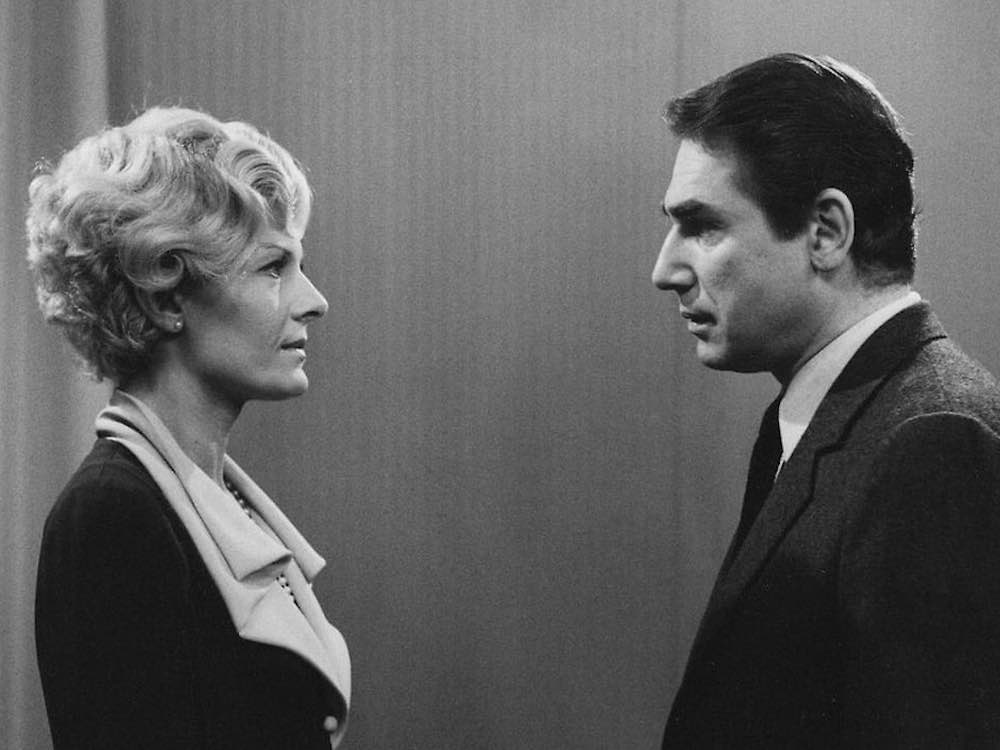
Thu 18 July, 6.45pm
Opening Night
Repeat screening on Tue 30 July
La Musica (4K Restoration)
Marguerite Duras’s first film as a director – co-directed with Paul Seban – is a delicate and poignant exploration of a man and a woman as they try to go their separate ways.
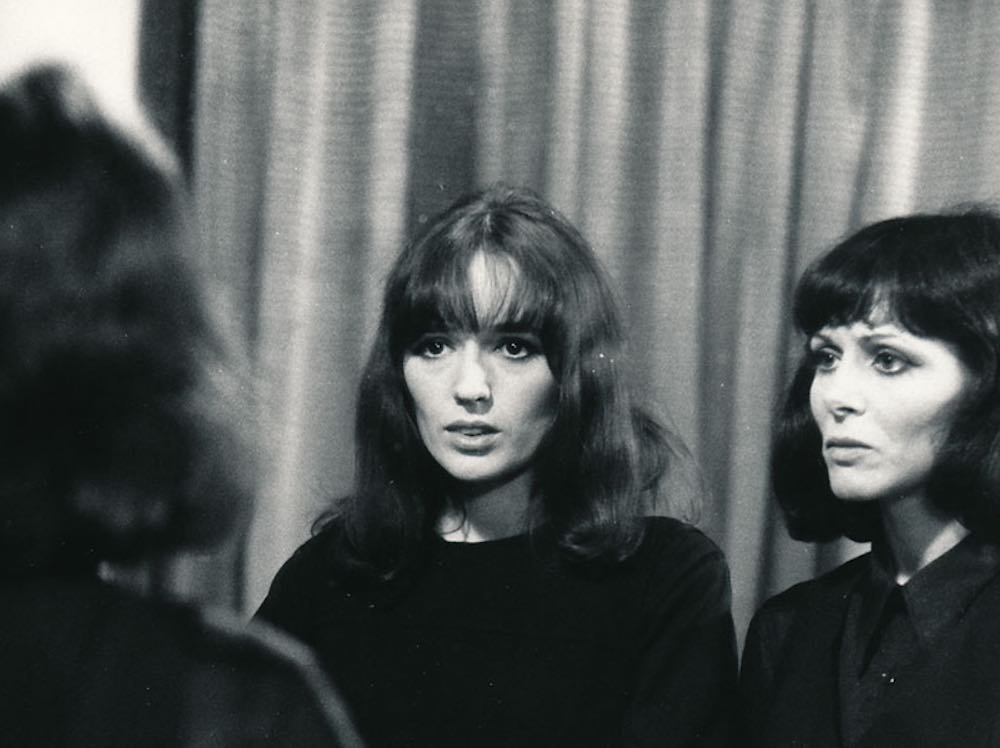
Fri 19 July, 6.45pm
Repeat screening on Tue 6 August
Destroy, She Said (4K Restoration)
In Marguerite Duras’s debut as a solo director, an empty hotel is host to two men and two women, whose dynamics prove unpredictable and sometimes perverse.
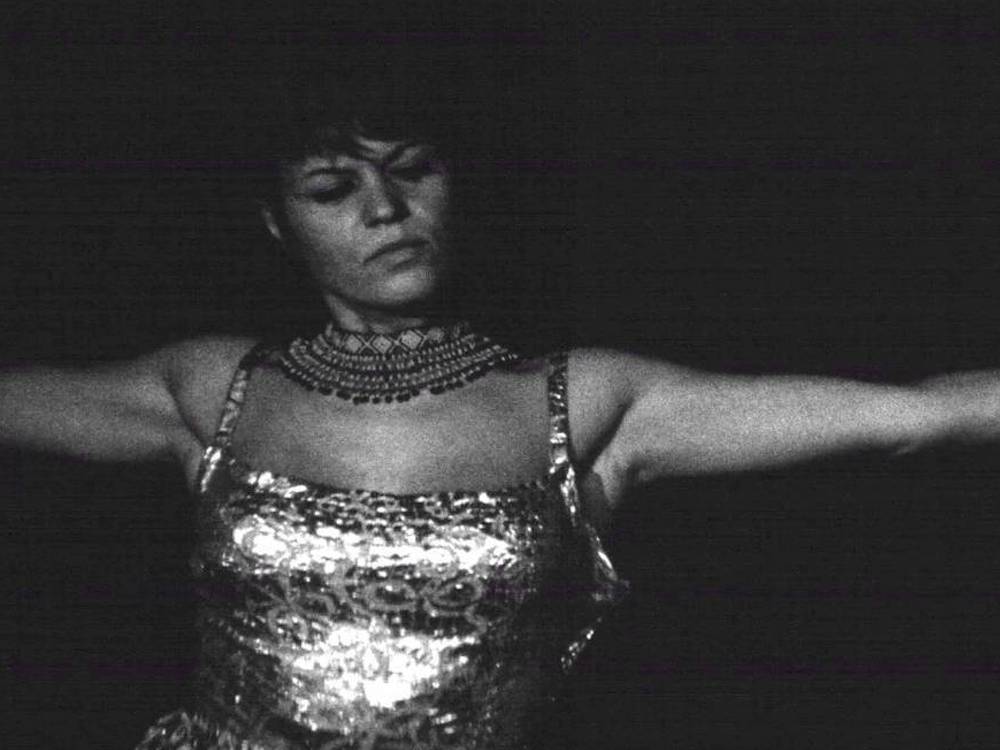
Sat 20 July, 2.30pm
Dim Dam Dom: Marguerite Duras on Television
A selection of five interviews conducted by Marguerite Duras for the television show Dim Dam Dom, whose subjects include France’s first woman prison warden, a zookeeper, a stripper, and a seven-year-old boy.
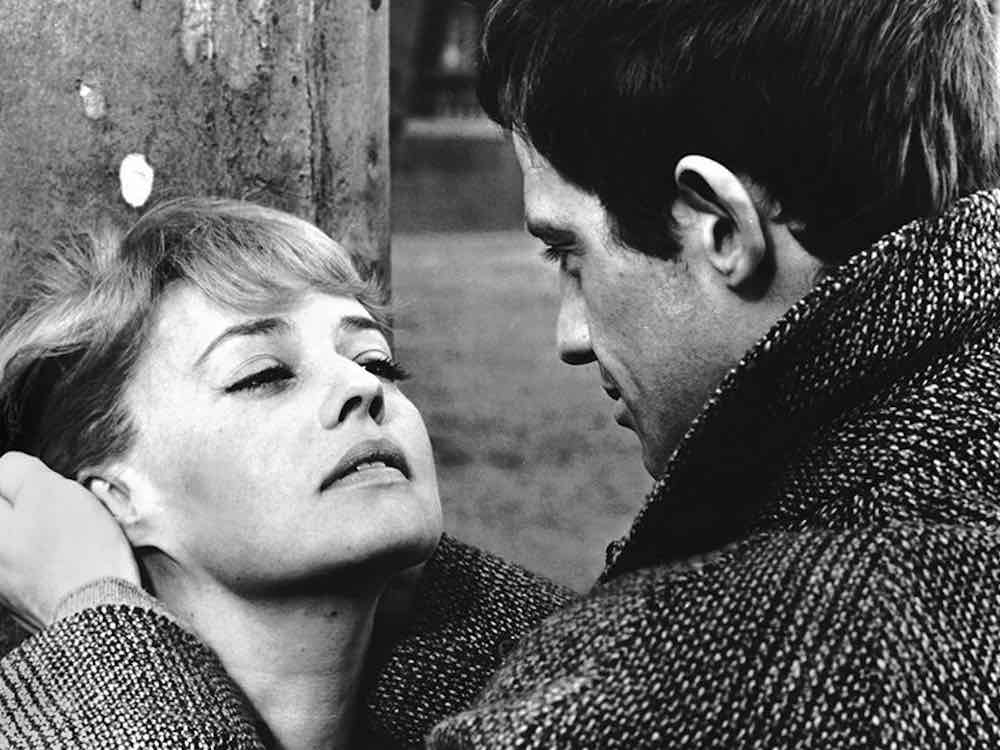
Sat 20 July, 4.30pm
Moderato Cantabile
Peter Brook acquired the rights to Marguerite Duras’s bestseller, Moderato Cantabile, as a vehicle for Jeanne Moreau whom he had directed in a theatrical production of Cat on a Hot Tin Roof. But the endeavour was much more collaborative than many filmic adaptations of Duras’s work.
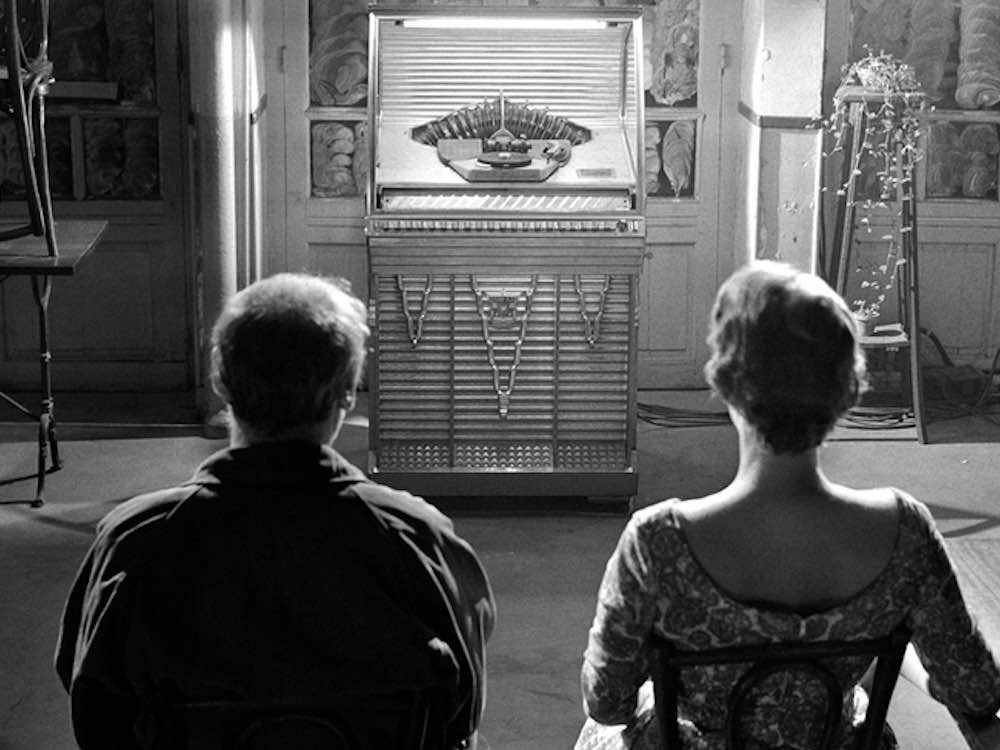
Sun 21 July, 2.30pm
The Long Absence
Thérèse, who runs a village bar, believes that her former husband, who was tortured and disappeared by the Gestapo at the end of the Second World War, has walked back into her life. But he has lost his memory. What ensues is an intense, impossible and one-sided love story – a Durassian speciality. This rarely-screened first film by New Wave editor Henri Colpi, written by Marguerite Duras, won the Palme d'Or in 1961.
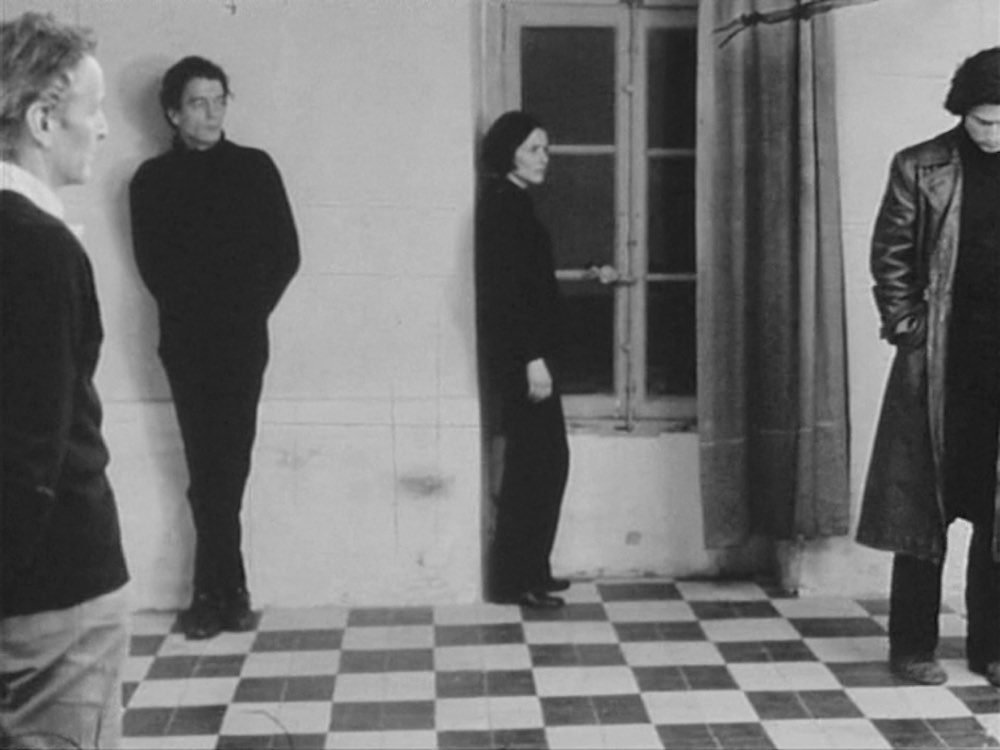
Sun 21 July, 4.30pm
Repeat screening on Wed 7 August
Jaune le soleil (4K Restoration)
In the town of Staadt, which is run by capitalists by day and Stalinists by night, David and Sabana have been tasked with guarding “the Jew”: a man set to be executed as soon as the Stalinist night falls. Jaune le soleil is, in Duras’s words, “a film about language”, in which “the purpose of the image is to carry the word”.
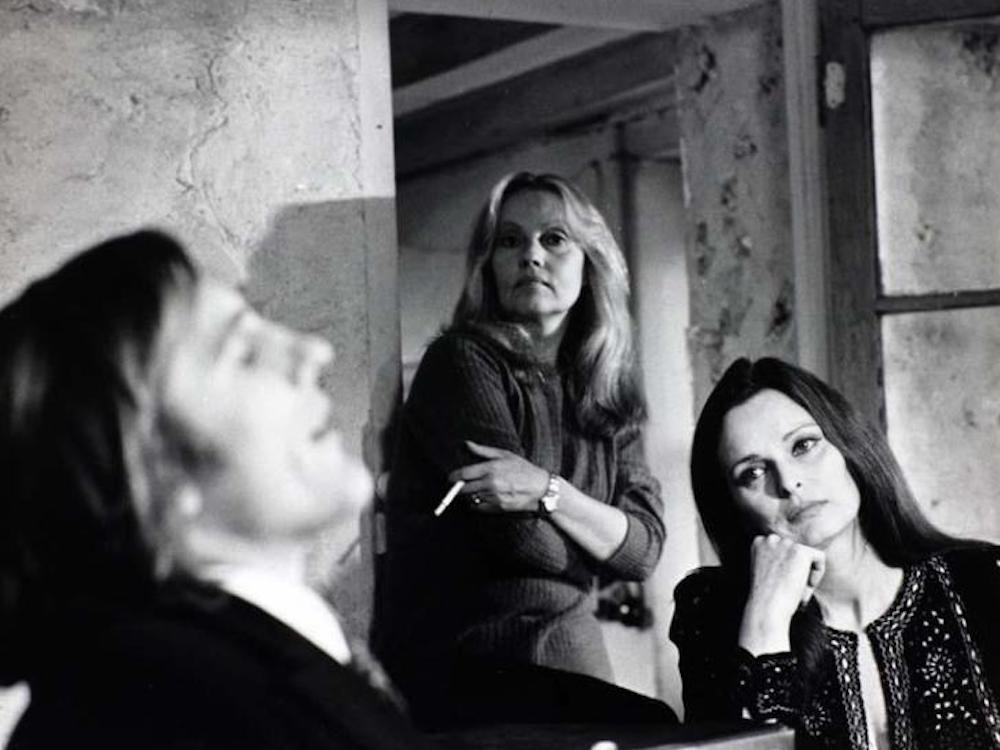
Thu 25 July, 8.40pm
Repeat screening on Fri 9 August
Nathalie Granger + Gaumont-Palace
The first of a series of films Duras shot at her country home, Nathalie Granger is the tale of two women, whose domestic lives become shrouded in an atmosphere of perpetual threat, as violence seeps into their quotidian.
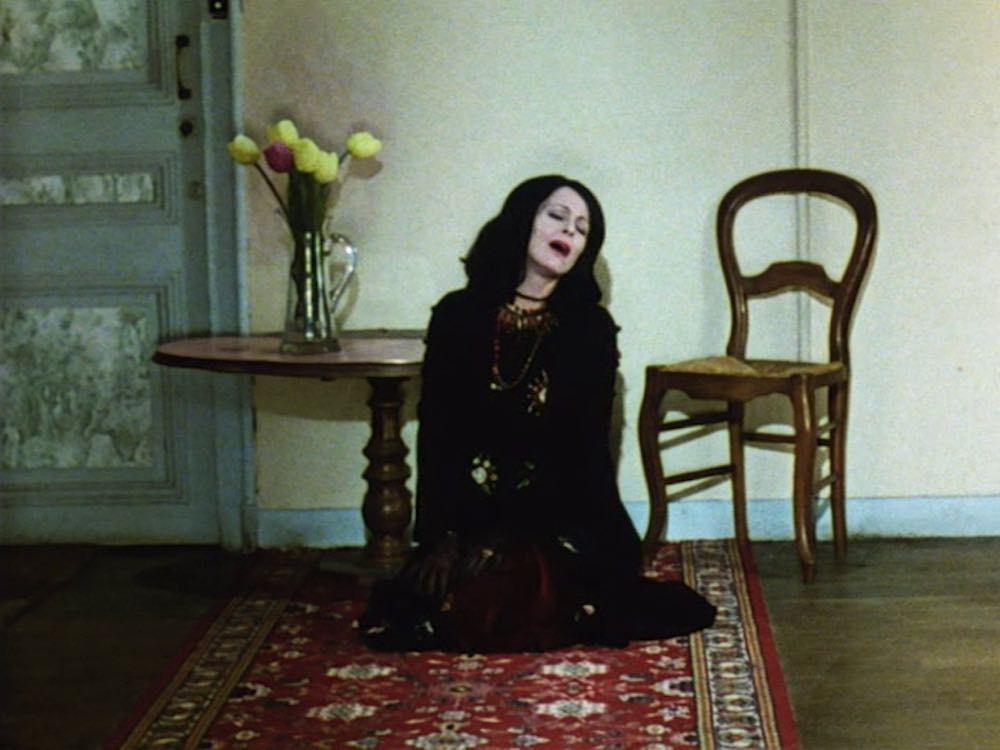
Sat 27 July, 6.30pm
Repeat screening on Sun 11 August
La Femme du Gange + Nuit noire, Calcutta
Dwelling on the immortality of desire, La Femme du Gange sees a man return to the coastal location of S. Thala. Haunted by the memory of an affair he had had there long ago, he intends to kill himself. Playing alongside the newly restored Nuit Noire, Calcutta by Marin Karmitz, which, informed by Duras's experiences with alcoholism, also features the wanderings of a troubled man in a coastal town.
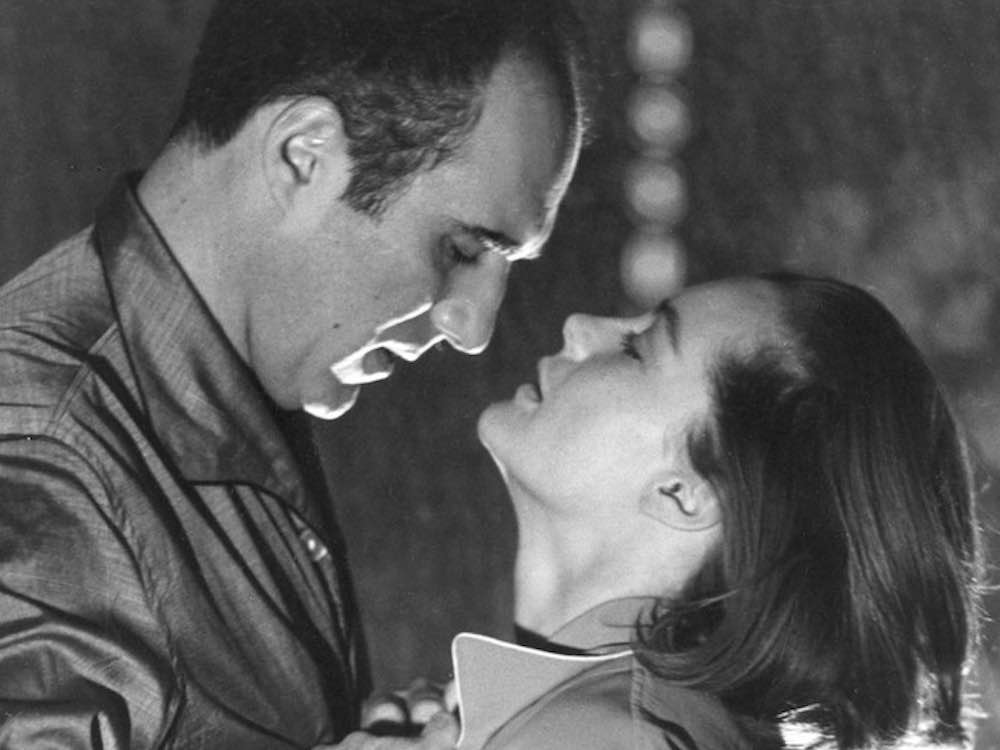
Sun 28 July, 4pm
La Voleuse
Written by Marguerite Duras, the script of La Voleuse - directed by Jean Chapot - is fairly conventional, but its subject resonates with many themes and motifs she revisited throughout her literary and cinematic work: the abandoned child; belated, compulsive grief; class divisions… With a strong performance by Romy Schneider.
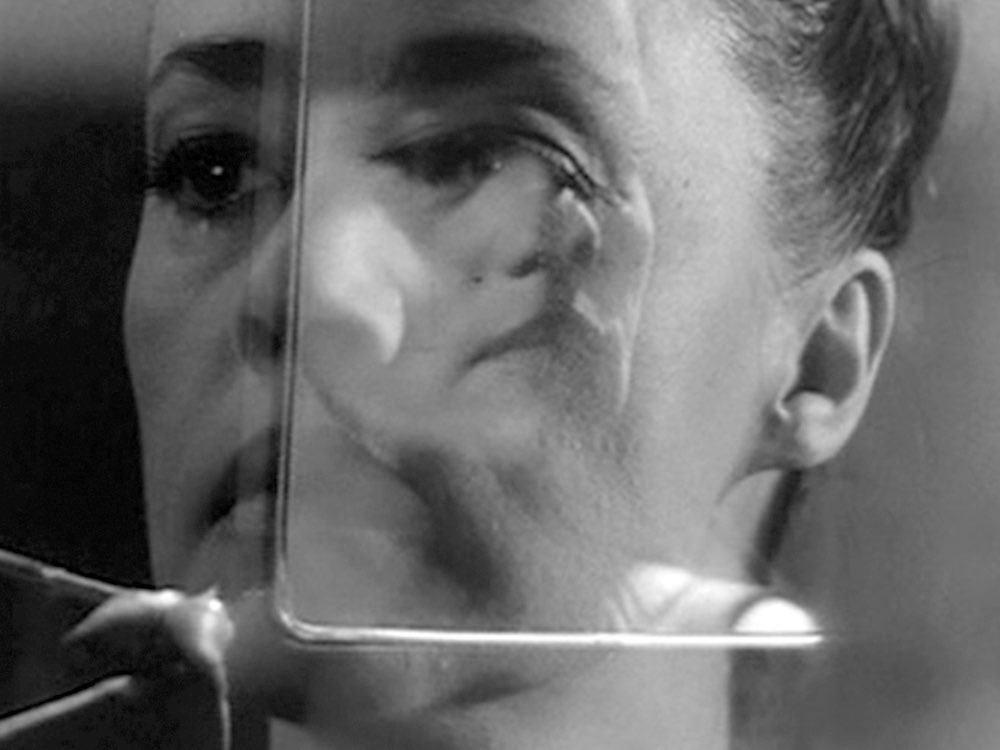
Thu 1 August, 8.45pm
Repeat screening on Sun 11 August
Mademoiselle
A supressed and sociopathic school teacher (Jeanne Moreau) unsuspectedly torments residents of a small French village with acts of violence and destruction.
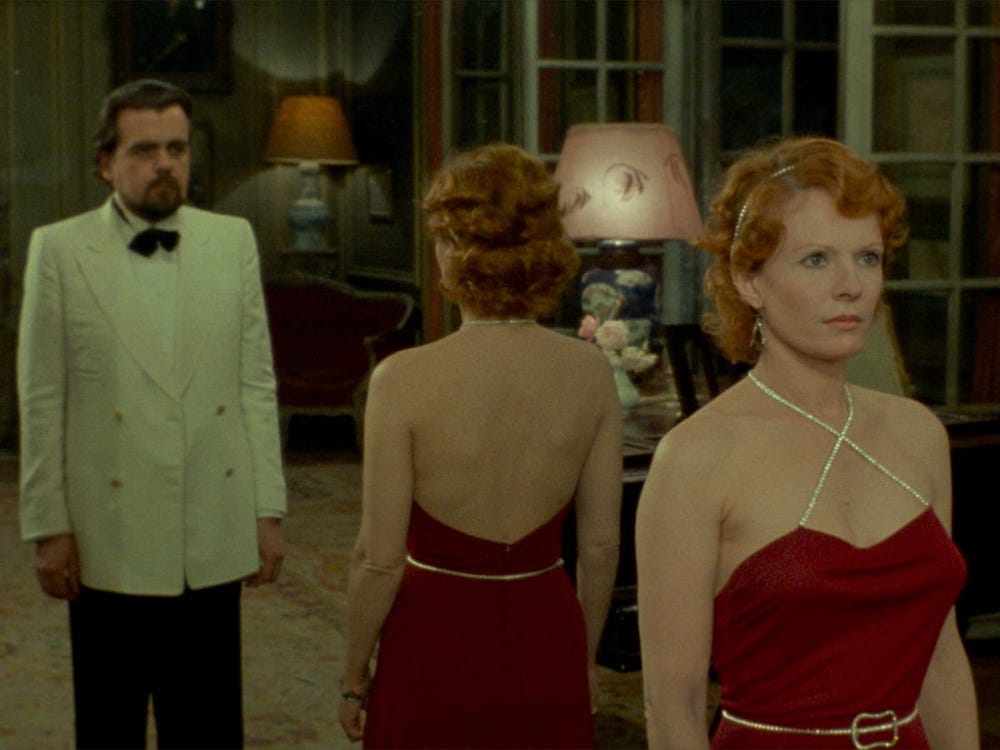
Sat 3 August, 4pm
Repeat screening on Wed 14 August
India Song
In India Song, Duras’s sixth and best-known feature, Delphine Seyrig is the seductive Anne-Marie Stretter, wife of the French ambassador to India in the 1930s. In a luxurious mansion, sheltered from colonial horrors, she struggles to keep up appearances as white high society starts to crumble, and the reality of the world outside threatens to impinge.
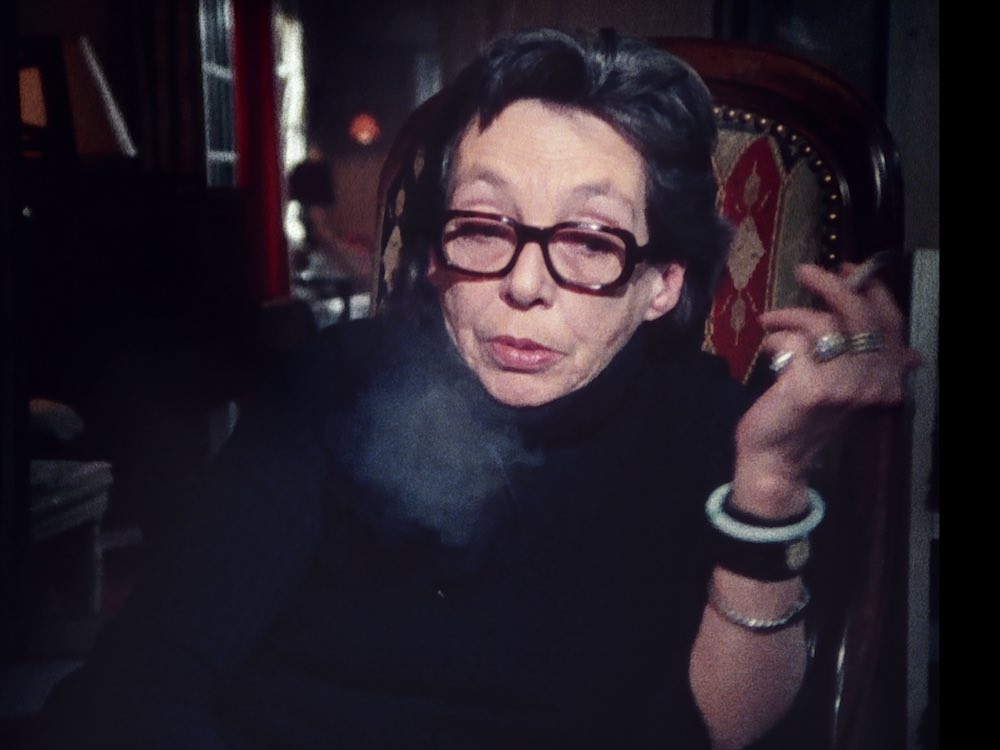
Sun 4 August, 2.15pm
Les Lieux de Marguerite Duras
A documentary interview made with Marguerite Duras by the journalist Michelle Porte and shown in two parts on French television in May 1976.
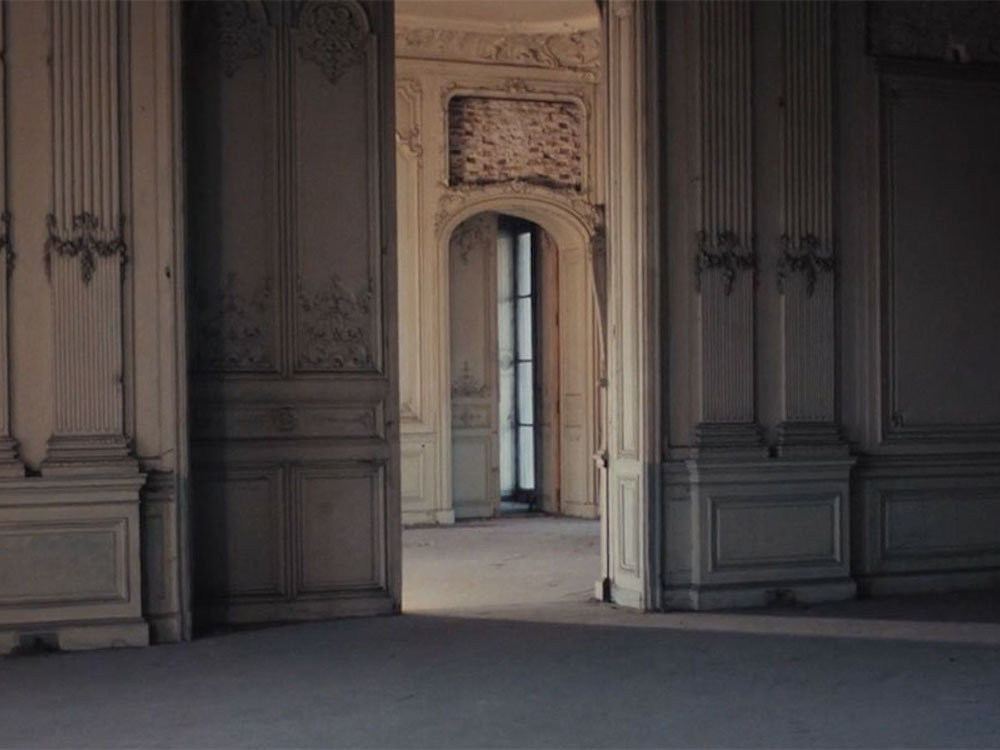
Sun 4 August, 5pm
Repeat screening on Fri 16 August
Son nom de Venise dans Calcutta désert + Cygne I & II
Wanting to “finish what [she] had started” in 1975 with India Song, a film that had left her dissatisfied, Duras set out the following year, during the coldest days of winter, to remake it. The result is radical, even by Duras's standards: a film that does away with representation entirely.
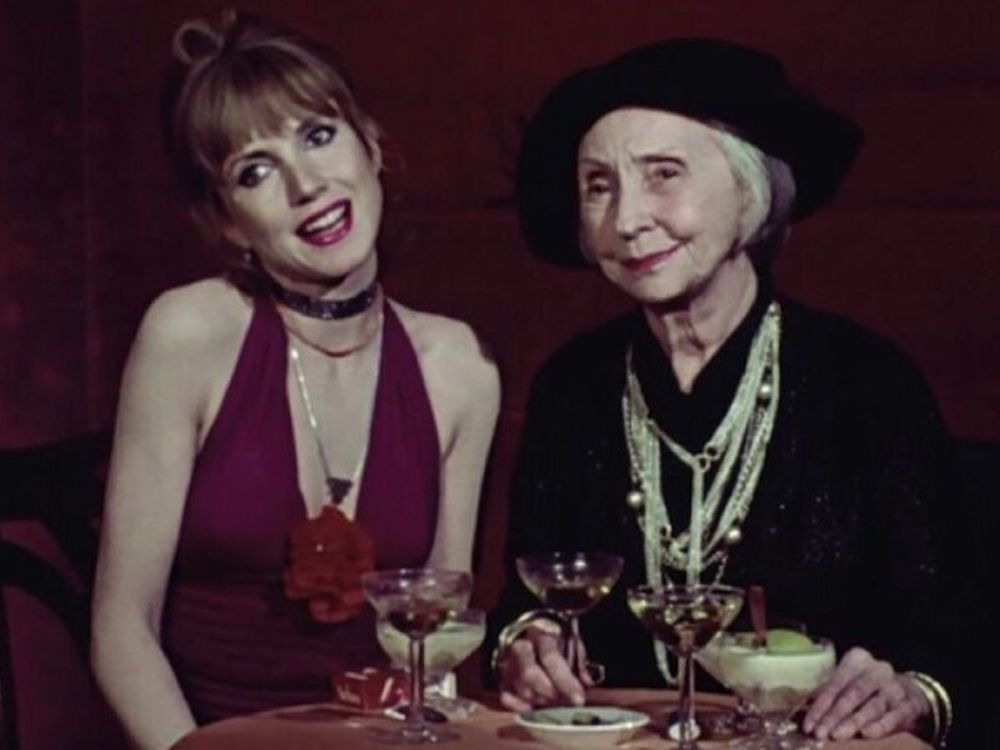
Thu 8 August, 6.30pm
Repeat screening on Wed 21 August
Des journées entières dans les arbres
Duras’s narratively most conventional film is also perhaps her most personal, and its painful autobiographical components might explain the 22-year gap between writing the source novel and its translation onto the screen. A film about the waning of the French colonies, embodied here by an ageing, troublesome mother. With a brilliant performance by Bulle Ogier.
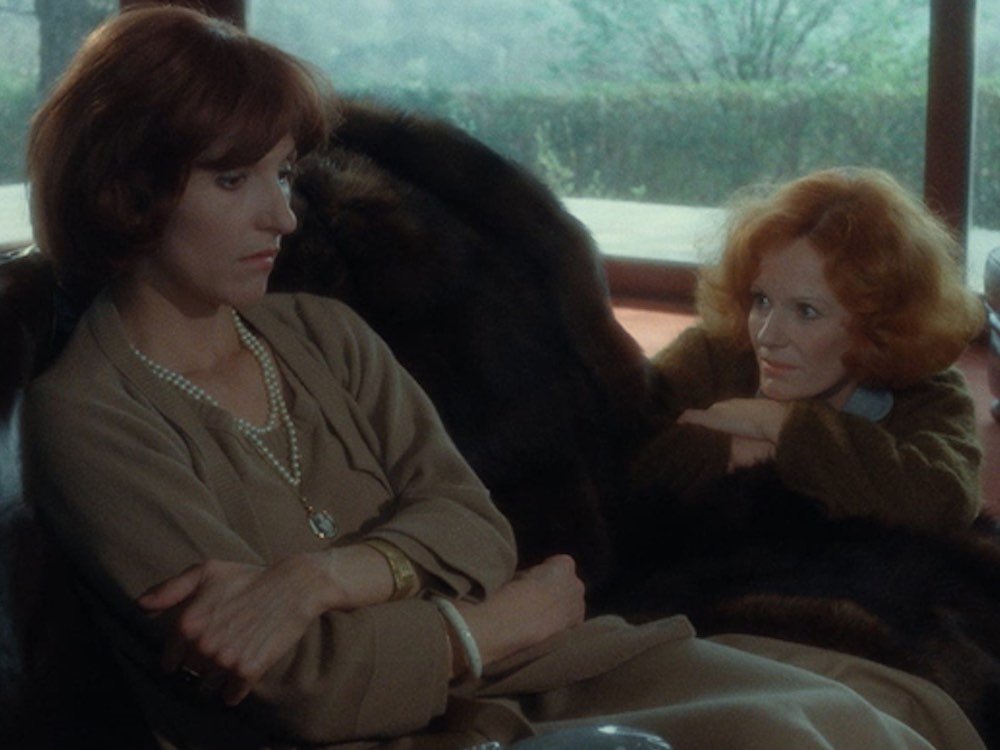
Sat 10 August, 7pm
Repeat screening on Fri 23 August
Baxter, Vera Baxter
This portrait of Vera Baxter (Claudine Gabay) – an affectless bourgeois woman, and (as an ever-surprising Durassian voiceover tells us) witch – unfolds in an isolated modernist villa, bordering a forest.
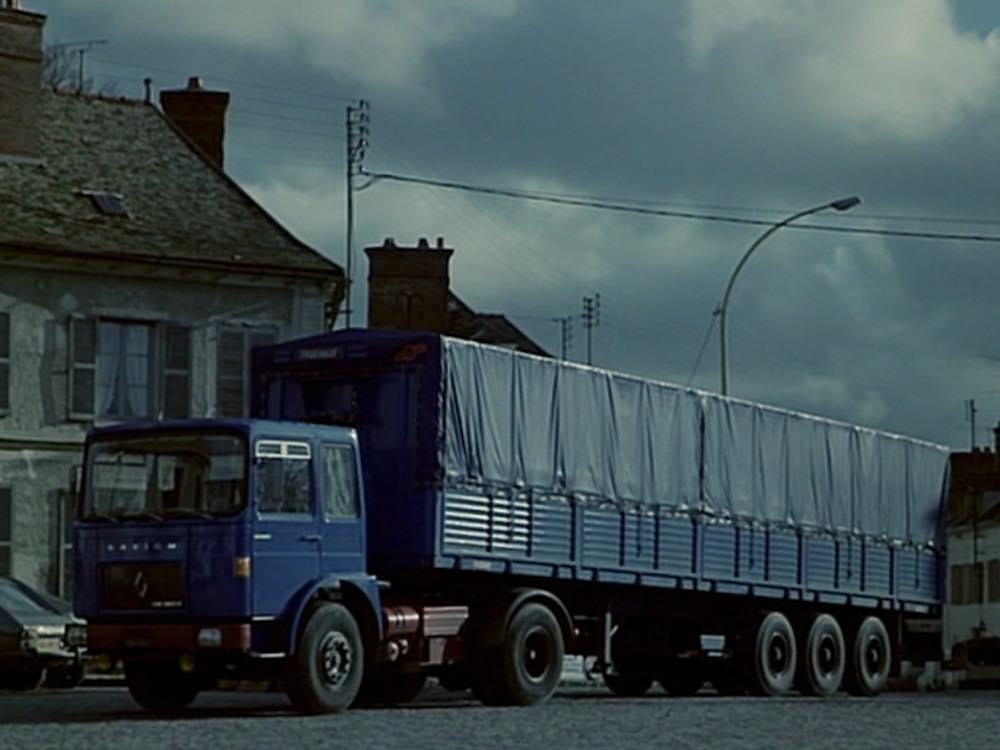
Tue 13 August, 7pm
Repeat screening on Tue 27 August
Le Camion on 35mm
“It would have been a film…” The script of an unconventional road movie, written using the conditional tense, is read by Gérard Depardieu and Marguerite Duras from the comfort of her country home. Occasionally, we see a lorry as it travels along a country road, from day to night.
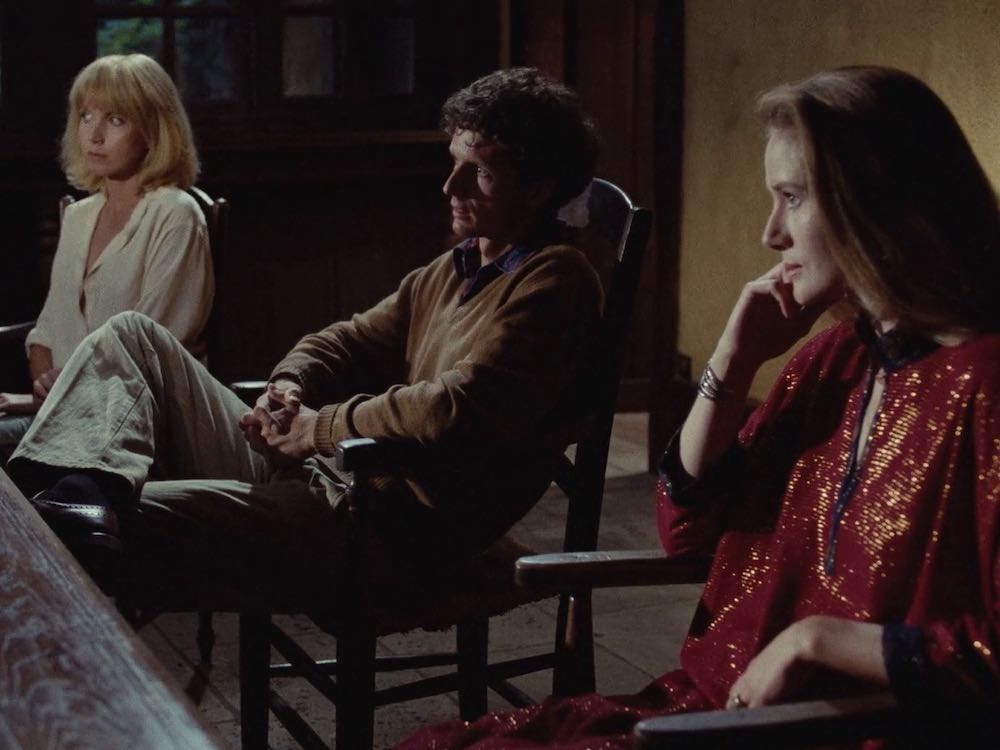
Sat 17 August, 5pm
Repeat screening on Fri 30 August
Le Navire Night (2K Restoration)
"Every night in Paris, hundreds of men and women use the anonymity of unused telephone lines that date from the German occupation to talk to one another, to love one another." In 1978, Duras attempted to adapt her friend's story of thwarted, impossible love. Le Navire Night is the film that resulted from the impossibility of adapting that story.
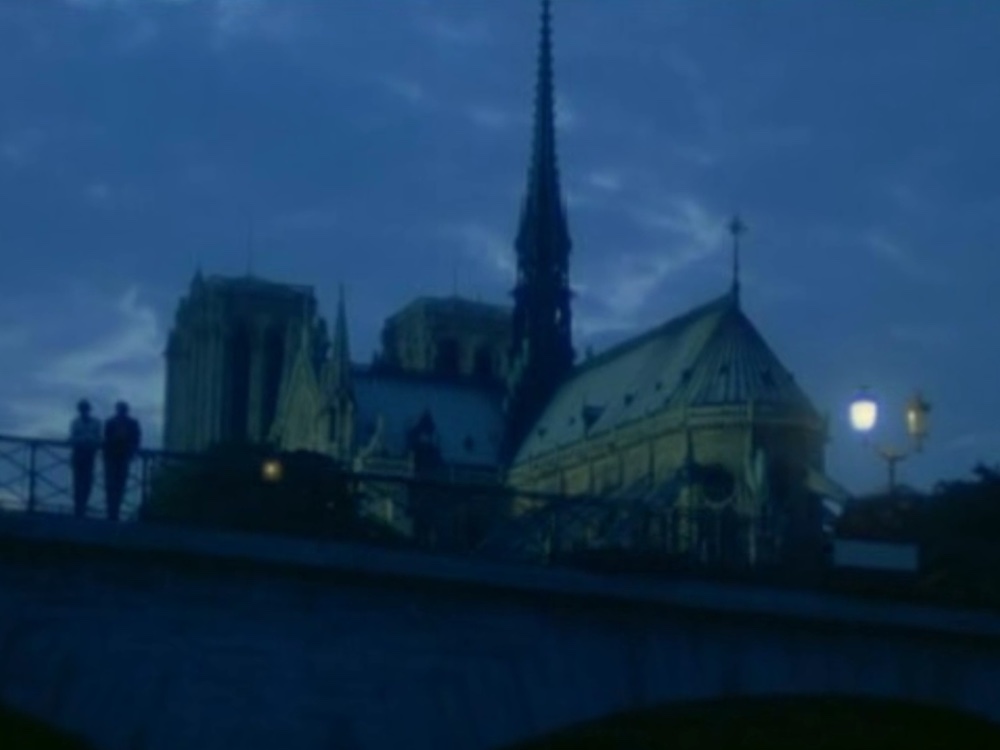
Sat 17 August, 7pm
Aurélia Steiner
The traumatic testimony of Aurélia Steiner – a fictional Jewish girl born in a concentration camp, and now living as part of the diaspora – captured in her letters and voiced by Duras, provides the soundtrack to the 'Aurélia Steiner' films, which were made using rushes originally shot for Le Navire Night.
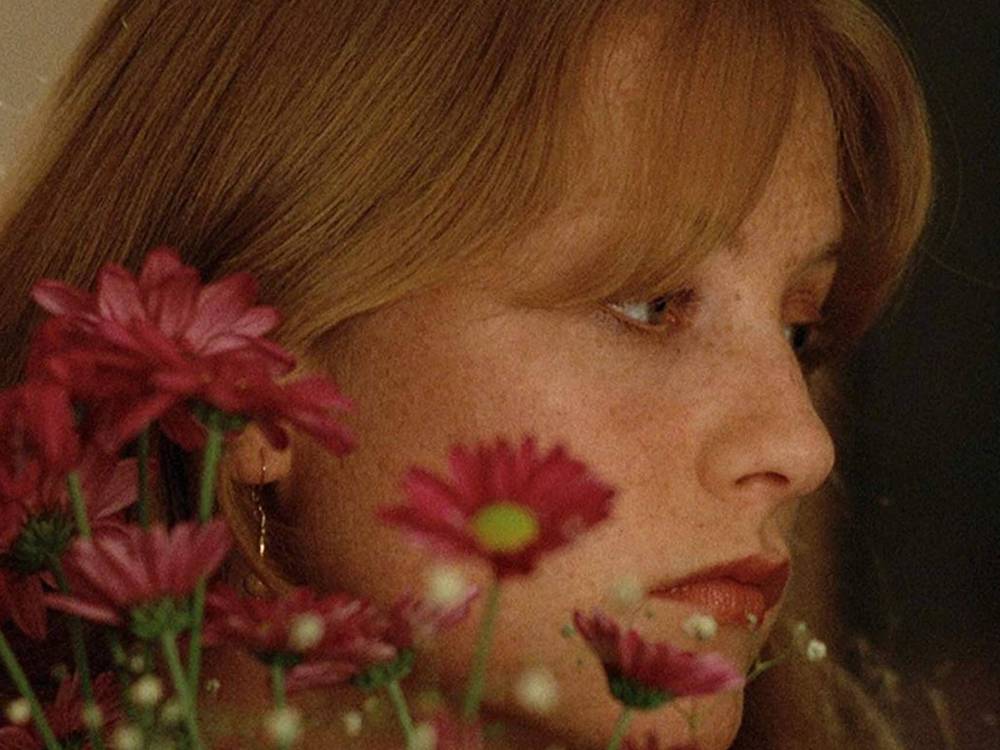
Sun 18 August, 4pm
Sauve qui peut (la vie)
Following nearly a decade of technological and formal innovation, often in the relatively isolated milieu of French television, Sauve qui peut (la vie) marked Jean-Luc Godard’s return to the spotlight and the beginning of another remarkably productive period. Featuring an oral cameo from Godard's friend and frequent sparring partner, Marguerite Duras.
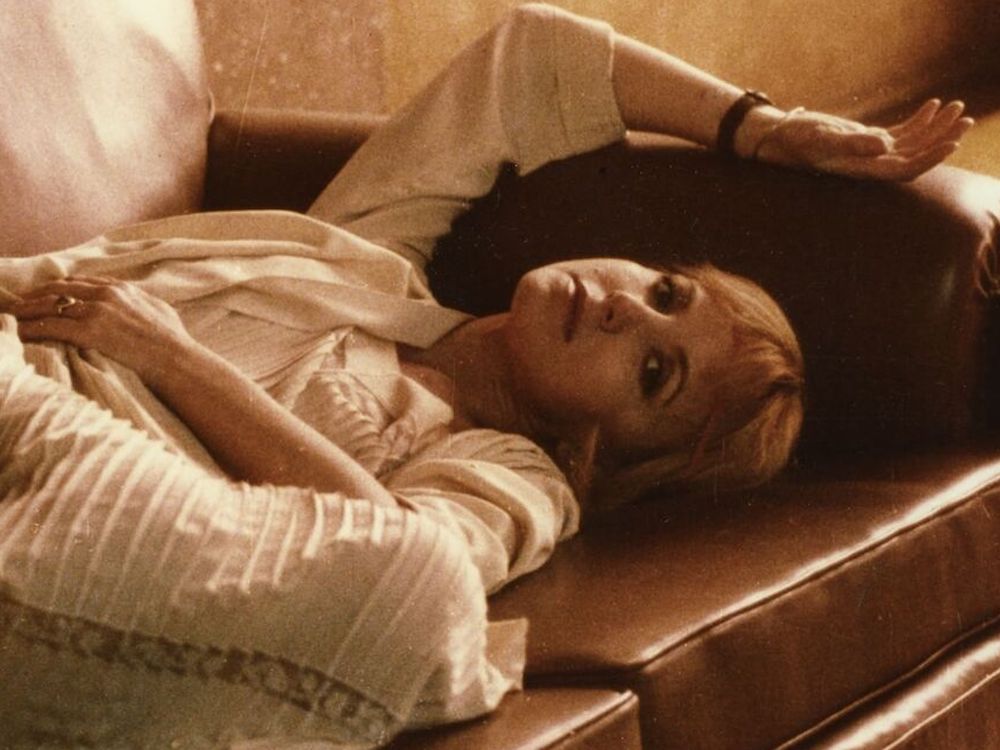
Thu 22 August, 6.45pm
Repeat screening on Sat 31 August
Agatha et les lectures illimitées on 35mm
In the deserted lobby of a hotel by the sea, the memories of an incestuous summer love story between a sister and a brother unfold over voice-over, as Bulle Ogier and Yann Andréa, dressed for winter, drift across the large room without making contact. Sometimes, in the hall’s mirror, we see a cameraman standing behind the heavy equipment being used to make the film itself.
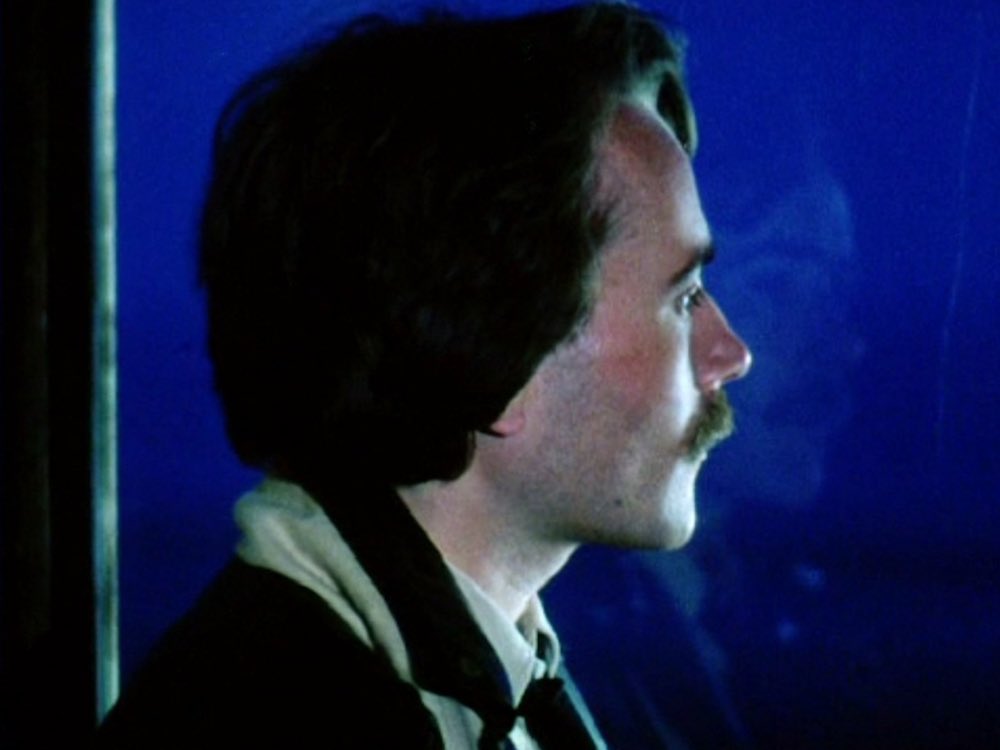
Sat 24 August, 5pm
Repeat screening on Sun 1 September
Les Mains négatives + L'Homme atlantique
Two of Duras’s most simple but aesthetically radical films, both made using footage originally shot for two feature films.
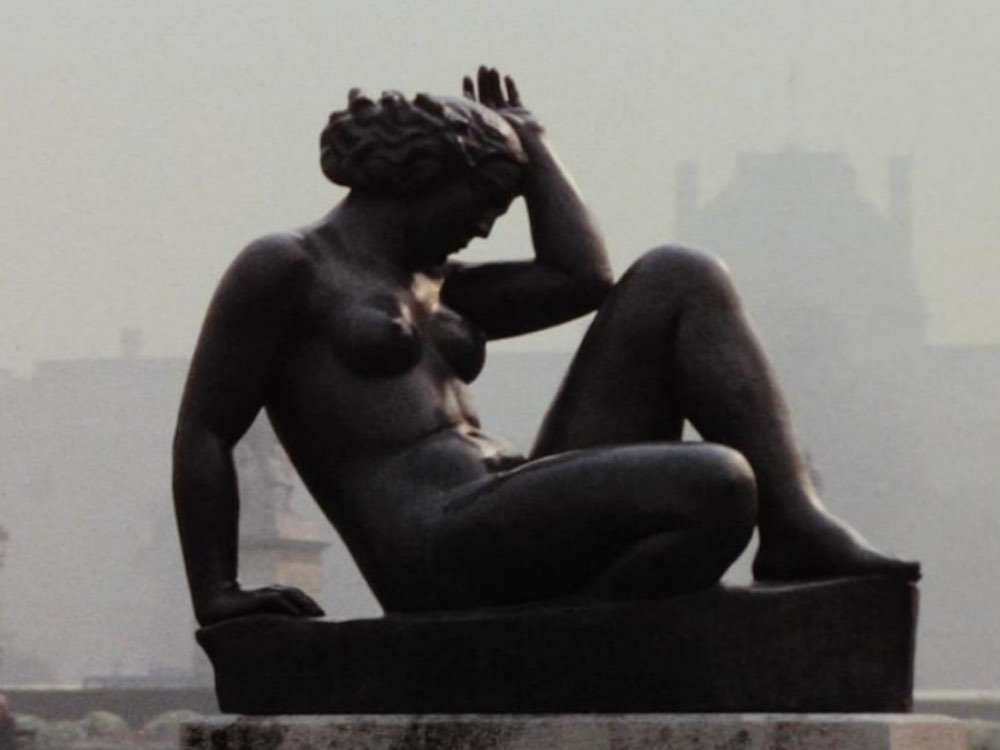
Sat 24 August, 7pm
Repeat screening on Sat 7 September
Il Dialogo di Roma + Césarée
Two films about the impossible love story between a Roman conqueror and Berenice, Queen of the Jews, who was first taken captive and then sent back to Caesarea in Palestine.
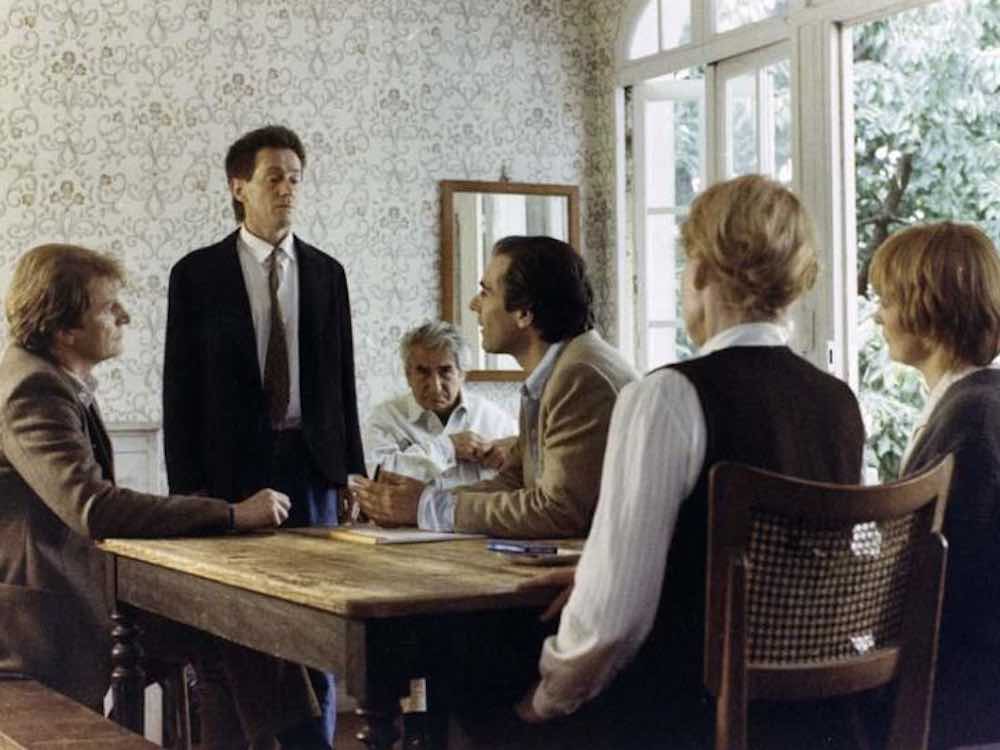
Sun 25 August, 6pm
Closing Night
Duras and Children
Marguerite Duras was "unconditionally for the youth". This programme brings together Duras's last film Les Enfants, about a child who refuses to go to school “because they teach me things I don’t know”, a short adaptation of Duras's children's story by Jean-Marie Straub and Danièle Huillet, and a made-for-television short in which Duras muses on what attracts children to new toys.

Thu 18 July, 6.45pm
Opening Night
Repeat screening on Tue 30 July
La Musica (4K Restoration)
Marguerite Duras’s first film as a director – co-directed with Paul Seban – is a delicate and poignant exploration of a man and a woman as they try to go their separate ways.

Fri 19 July, 6.45pm
Repeat screening on Tue 6 August
Destroy, She Said (4K Restoration)
In Marguerite Duras’s debut as a solo director, an empty hotel is host to two men and two women, whose dynamics prove unpredictable and sometimes perverse.

Sat 20 July, 2.30pm
Dim Dam Dom: Marguerite Duras on Television
A selection of five interviews conducted by Marguerite Duras for the television show Dim Dam Dom, whose subjects include France’s first woman prison warden, a zookeeper, a stripper, and a seven-year-old boy.

Sat 20 July, 4.30pm
Moderato Cantabile
Peter Brook acquired the rights to Marguerite Duras’s bestseller, Moderato Cantabile, as a vehicle for Jeanne Moreau whom he had directed in a theatrical production of Cat on a Hot Tin Roof. But the endeavour was much more collaborative than many filmic adaptations of Duras’s work.

Sun 21 July, 2.30pm
The Long Absence
Thérèse, who runs a village bar, believes that her former husband, who was tortured and disappeared by the Gestapo at the end of the Second World War, has walked back into her life. But he has lost his memory. What ensues is an intense, impossible and one-sided love story – a Durassian speciality. This rarely-screened first film by New Wave editor Henri Colpi, written by Marguerite Duras, won the Palme d'Or in 1961.

Sun 21 July, 4.30pm
Repeat screening on Wed 7 August
Jaune le soleil (4K Restoration)
In the town of Staadt, which is run by capitalists by day and Stalinists by night, David and Sabana have been tasked with guarding “the Jew”: a man set to be executed as soon as the Stalinist night falls. Jaune le soleil is, in Duras’s words, “a film about language”, in which “the purpose of the image is to carry the word”.

Thu 25 July, 8.40pm
Repeat screening on Fri 9 August
Nathalie Granger + Gaumont-Palace
The first of a series of films Duras shot at her country home, Nathalie Granger is the tale of two women, whose domestic lives become shrouded in an atmosphere of perpetual threat, as violence seeps into their quotidian.

Sat 27 July, 6.30pm
Repeat screening on Sun 11 August
La Femme du Gange + Nuit noire, Calcutta
Dwelling on the immortality of desire, La Femme du Gange sees a man return to the coastal location of S. Thala. Haunted by the memory of an affair he had had there long ago, he intends to kill himself. Playing alongside the newly restored Nuit Noire, Calcutta by Marin Karmitz, which, informed by Duras's experiences with alcoholism, also features the wanderings of a troubled man in a coastal town.

Sun 28 July, 4pm
La Voleuse
Written by Marguerite Duras, the script of La Voleuse - directed by Jean Chapot - is fairly conventional, but its subject resonates with many themes and motifs she revisited throughout her literary and cinematic work: the abandoned child; belated, compulsive grief; class divisions… With a strong performance by Romy Schneider.

Thu 1 August, 8.45pm
Repeat screening on Sun 11 August
Mademoiselle
A supressed and sociopathic school teacher (Jeanne Moreau) unsuspectedly torments residents of a small French village with acts of violence and destruction.

Sat 3 August, 4pm
Repeat screening on Wed 14 August
India Song
In India Song, Duras’s sixth and best-known feature, Delphine Seyrig is the seductive Anne-Marie Stretter, wife of the French ambassador to India in the 1930s. In a luxurious mansion, sheltered from colonial horrors, she struggles to keep up appearances as white high society starts to crumble, and the reality of the world outside threatens to impinge.

Sun 4 August, 2.15pm
Les Lieux de Marguerite Duras
A documentary interview made with Marguerite Duras by the journalist Michelle Porte and shown in two parts on French television in May 1976.

Sun 4 August, 5pm
Repeat screening on Fri 16 August
Son nom de Venise dans Calcutta désert + Cygne I & II
Wanting to “finish what [she] had started” in 1975 with India Song, a film that had left her dissatisfied, Duras set out the following year, during the coldest days of winter, to remake it. The result is radical, even by Duras's standards: a film that does away with representation entirely.

Thu 8 August, 6.30pm
Repeat screening on Wed 21 August
Des journées entières dans les arbres
Duras’s narratively most conventional film is also perhaps her most personal, and its painful autobiographical components might explain the 22-year gap between writing the source novel and its translation onto the screen. A film about the waning of the French colonies, embodied here by an ageing, troublesome mother. With a brilliant performance by Bulle Ogier.

Sat 10 August, 7pm
Repeat screening on Fri 23 August
Baxter, Vera Baxter
This portrait of Vera Baxter (Claudine Gabay) – an affectless bourgeois woman, and (as an ever-surprising Durassian voiceover tells us) witch – unfolds in an isolated modernist villa, bordering a forest.

Tue 13 August, 7pm
Repeat screening on Tue 27 August
Le Camion on 35mm
“It would have been a film…” The script of an unconventional road movie, written using the conditional tense, is read by Gérard Depardieu and Marguerite Duras from the comfort of her country home. Occasionally, we see a lorry as it travels along a country road, from day to night.

Sat 17 August, 5pm
Repeat screening on Fri 30 August
Le Navire Night (2K Restoration)
"Every night in Paris, hundreds of men and women use the anonymity of unused telephone lines that date from the German occupation to talk to one another, to love one another." In 1978, Duras attempted to adapt her friend's story of thwarted, impossible love. Le Navire Night is the film that resulted from the impossibility of adapting that story.

Sat 17 August, 7pm
Aurélia Steiner
The traumatic testimony of Aurélia Steiner – a fictional Jewish girl born in a concentration camp, and now living as part of the diaspora – captured in her letters and voiced by Duras, provides the soundtrack to the 'Aurélia Steiner' films, which were made using rushes originally shot for Le Navire Night.

Sun 18 August, 4pm
Sauve qui peut (la vie)
Following nearly a decade of technological and formal innovation, often in the relatively isolated milieu of French television, Sauve qui peut (la vie) marked Jean-Luc Godard’s return to the spotlight and the beginning of another remarkably productive period. Featuring an oral cameo from Godard's friend and frequent sparring partner, Marguerite Duras.

Thu 22 August, 6.45pm
Repeat screening on Sat 31 August
Agatha et les lectures illimitées on 35mm
In the deserted lobby of a hotel by the sea, the memories of an incestuous summer love story between a sister and a brother unfold over voice-over, as Bulle Ogier and Yann Andréa, dressed for winter, drift across the large room without making contact. Sometimes, in the hall’s mirror, we see a cameraman standing behind the heavy equipment being used to make the film itself.

Sat 24 August, 5pm
Repeat screening on Sun 1 September
Les Mains négatives + L'Homme atlantique
Two of Duras’s most simple but aesthetically radical films, both made using footage originally shot for two feature films.

Sat 24 August, 7pm
Repeat screening on Sat 7 September
Il Dialogo di Roma + Césarée
Two films about the impossible love story between a Roman conqueror and Berenice, Queen of the Jews, who was first taken captive and then sent back to Caesarea in Palestine.

Sun 25 August, 6pm
Closing Night
Duras and Children
Marguerite Duras was "unconditionally for the youth". This programme brings together Duras's last film Les Enfants, about a child who refuses to go to school “because they teach me things I don’t know”, a short adaptation of Duras's children's story by Jean-Marie Straub and Danièle Huillet, and a made-for-television short in which Duras muses on what attracts children to new toys.
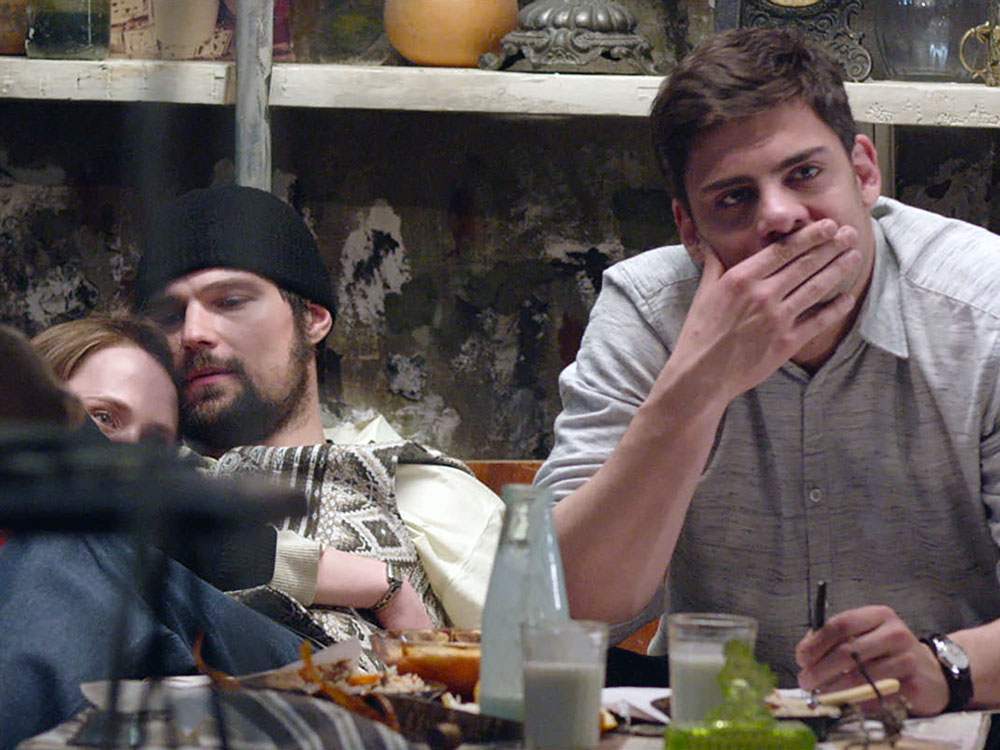









no. 236848.